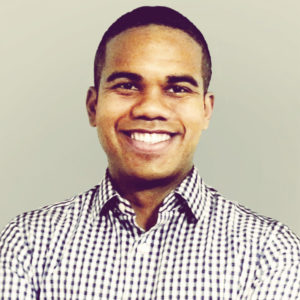On Oct. 22, seven former Minnesota Teachers of the Year addressed nearly 20 state senators, and discussed everything from early learning to teacher diversity. The esteemed educators shared shocking statistics, tremendous success stories and their hopes for all Minnesota kids, leaving the senators in awe.
2008 Teacher of the Year Derek Olson of Stillwater Area Public Schools kicked off the hearing. Olson, co-author of “From Good to Great,” a report which outlines the opinions of state and national teachers of the year, explained that to develop great educators, student teachers need high-quality clinical experiences and novice teachers need excellent mentors. Building off of the report’s recommendations, he called for increased investments in Q-Comp to incentivize strong teachers to become mentors. “A quality clinical experience and mentorship can make a new teacher good,” Olson said. “But by becoming a mentor teacher, a teacher can go from good to great.”
Sen. Petersen chimed in, asking how policymakers and schools can help ensure new educators have the training and mentorship experiences they need. Edina High School’s Jackie Roehl, 2012 Teacher of the Year, offered that one-on-one mentorships and greater peer learning opportunities could help all teachers meet their potential.
2002 Teacher of the Year Barb Stoflet (Hopkins) and 2007 Teacher of the Year Michael Smart (Intermediate District 287, Plymouth) shifted gears to discuss the need for innovative solutions in teaching at-risk youth and students with disabilities. Smart made a case for technology as a supplement to traditional teaching styles, explaining that technology has helped him increase student learning and improve student-teacher relationships. In fact, Smart’s techniques have worked so well, technology-based programs replicating his methods are sprouting up throughout Minnesota.
“How can we use these methods and other solutions out there to close our achievement gaps?” asked Sen. Weber.
Stoflet admitted not to have a silver bullet to close Minnesota’s academic achievement gaps, but emphasized that teachers must move from the front of their classrooms to the center. And technology is one tool to help them do this. “If technology isn’t improving the relationship between teachers and students, then you’re doing it wrong,” Smart added. “Technology can reach the kids that need the most help, but unfortunately, according to a recent poll, 97 percent of teachers from underserved schools say that they lack access to meaningful technology for their classrooms.”
Next up was was Katy Smith, 2011 Teacher of the Year from Winona. An early childhood educator, Smith praised the senators for their investments in early learning scholarships but noted that we must do much more for our youngest learners and their families. “While I’m happy about the investments made in early learning,” she said, “you will compound that investment when we also invest in parents.”
2006 Teacher of the Year and MinnCAN board member Lee-Ann Stephens closed out the hearing with an impassioned plea to increase teacher diversity. “With nearly 100 percent of our teachers being white, what story are we telling our kids of color?” asked Stephens, one of the few teachers of color at her St. Louis Park school. “Kids of color need to see themselves reflected in the leadership of their classroom and it’s not happening.”
Sen. Bonoff pointed out that the Legislature passed legislation in 2011 requiring the state to allow principals to recruit and hire out-of-state teachers, including graduates from historically black colleges and universities and Hispanic serving institutes. But this law has yet to be implemented.
“Our laws prevent teachers of color from coming into Minnesota. We need to update our reciprocity laws to encourage teacher diversity,” Stephens confirmed. Thankfully, before the hearing ended, Senate Education Policy Chair Sen. Torres Ray announced that she and Sen. Kent are launching an initiative to improve the state’s teacher recruitment and training systems as a means to increase teacher diversity.
The teachers’ presentations, coupled with Sen. Torres Ray’s announcement, proved that when teachers share their stories, concerns and ideas, legislators listen.
Learn more about MinnCAN's work in many of the important areas Minnesota Teachers of the Year and legislators discussed (such as student teacher placements, teacher diversity and early learning) and contact us to share your stories and ideas. We want to listen.
